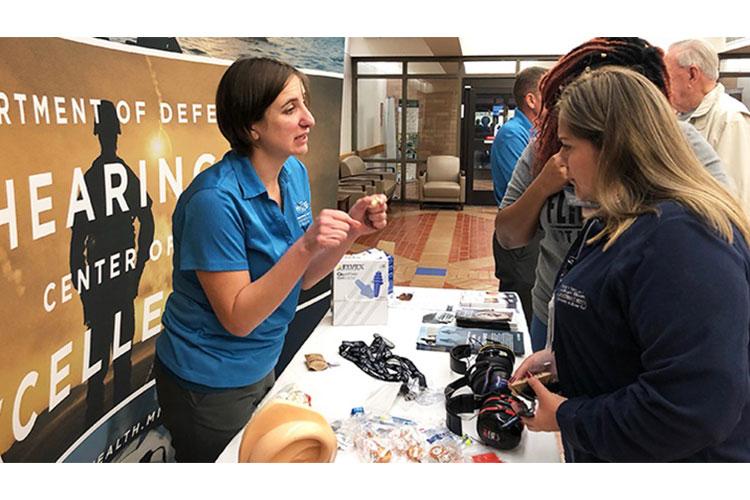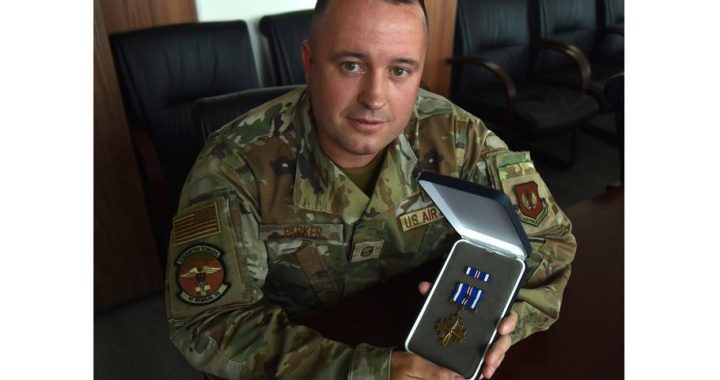HCE Celebrates 10 Years Focused on Hearing Health
4 min read
A decade has passed since a rising trend of hearing loss among military service members prompted Congress to mandate a new center of excellence dedicated to protecting and improving hearing health.
The 2009 National Defense Authorization Act called on the Defense Department to establish a center of excellence focused on the prevention, diagnosis, mitigation, treatment, and rehabilitation of hearing loss and auditory system injuries in military personnel.
The DoD Hearing Center of Excellence was officially stood up in December 2010, when now retired Air Force Col. (Dr.) Mark Packer took the helm.
The center’s primary responsibilities have been to develop a data registry to track hearing loss and auditory injuries across the armed forces, facilitate hearing health research, develop best practices and clinical education, and help to enable Department of Veterans Affairs rehabilitation benefits and services to former service members.
“I’ve been humbled and amazed by the multiple, ongoing collaborations among HCE, the military services, Department of Veterans Affairs, our national and international partners, as well as those within the academic and industry communities, which have directly contributed to improving military hearing and balance health outcomes,” said Air Force Col. (Dr.) LaKeisha Henry, the center’s division chief since March 2017.
Henry emphasized how collaboration with the VA and other government, industry, and academic partners over the years has played a critical role in HCE’s work to reduce hearing injury among service members.
One of the most significant successes observed over the last few years is an overall decrease in hearing impairment for all DoD components, according to Henry. This improvement is likely associated with multifaceted hearing conservation programs administered by each service, and with HCE’s Comprehensive Hearing Health Program.
According to a recently released Hearing Health Surveillance Data Review conducted by the DoD Hearing Conservation Working Group, the percentage of service members with hearing impairment fell from 21% in 2012 to 15% in 2018. Among DoD civilians enrolled in service hearing conservation programs, the percentage with hearing impairment also decreased from 51% in 2012 to 40% in 2018.
“This is remarkable and encouraging news — and a trend we anticipate will continue with ongoing emphasis on DoD hearing loss prevention strategies,” said Henry.
The HCE also recently established the congressionally-mandated Joint Hearing Loss and Auditory System Injury Registry, which supports medical readiness and hearing health programs by tracking and monitoring service-related hearing loss injuries of service members and veterans from 2001 to present. The registry combines clinical episodes of care from both DoD and VA audiograms, as well as demographic, deployment, and theater trauma and non-trauma data to promote continuity of care, analysis, research, and clinical performance.
Over the last decade, the center’s clinical branch has partnered with a cadre of DoD and VA researchers and clinicians to help develop, disseminate, and implement clinical best practices across DoD and VA that serve as force multipliers at every echelon of care.
Best practice guidance and recommendations address such topics as aural blast injury/acoustic trauma and hearing loss (part of the Joint Trauma System clinical practice guidelines); pharmaceutical interventions of hearing loss; vestibular (balance) assessment and rehabilitation; central auditory processing disorder; and adult tinnitus management.
In support of combatant commands, HCE, service representatives, and associated DoD laboratories have researched the impact of hearing loss on mission performance. These efforts have been focused on establishing DoD accession and retention hearing profile standards and studying ways to bring hearing health care to operational settings.
New strategies include using boothless audiometry (hearing testing) and hearing protection device fit check systems, which are used to verify service members receive appropriate protection from hazardous noise with their issued device.
“Wearing the right hearing protection is an ongoing challenge for service members, who have a dual need to protect their hearing while maintaining situational awareness,” explained Dr. Theresa Schulz, the center’s prevention branch chief.
HCE is collaborating with government and industry leaders to develop a Hearing Protection Device Evaluated Products List so service members can select the best device available to meet specific operational tasks and individual needs.
To provide unity of research efforts across the auditory science network, the center established and actively maintains a collaborative research network of more than 225 auditory researchers and stakeholders from the DoD, VA, international bodies, industry, and academia. The Collaborative Auditory Vestibular Research Network serves in a scientific advisory capacity for programmatic research reviews, supports the development of research roadmaps, and brings hearing and balance health solutions to the combatant commands and their service members.
Additionally, the Pharmaceutical Interventions for Hearing Loss working group, was established with more than 200 members representing DoD, VA, FDA, NATO partner nations, industry, and academia, all dedicated to advancing this area of research. Through its studies, the group has determined successful drug therapy for hearing loss would benefit an estimated 27,000 service members annually, substantially improving medical readiness and reducing costs associated with hearing injury.
In the future, Henry would like to see more extensive partnerships and alliances with the services, VA, academia, industry, and international communities to foster more initiatives and solutions for hearing and balance disorders.
“Working together, we will continue to deliver solutions centered on auditory-vestibular system care — from prevention and research through rehabilitation,” Henry concluded.





